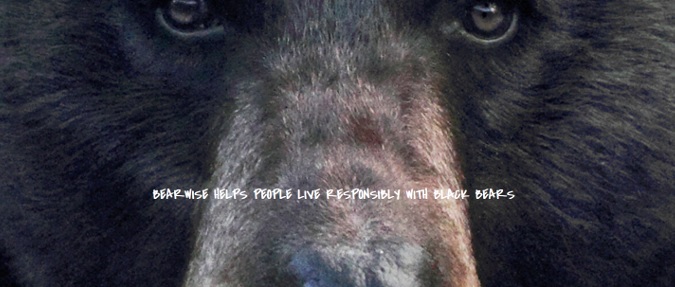
While there is no way to prevent a bear from wandering into a neighborhood, there are ways to discourage it from staying:
- Never feed a bear. Keep items such as grills, pet food and bird feeders off-limits to bears. Clean and store grills when not in use. Keep pet food indoors and take down bird feeders (April-November) when bears are active in your area.
- Use “bear-proof” garbage containers, or store garbage in the garage or other enclosed area until the morning of pick-up day.
Properly securing food and garbage prevents bears from accessing these non-natural, human-provided food sources, and helps avoid the unhealthy process of habituation that occurs when bears obtain food from people and begin associating humans with food.
If a bear is sighted in your neighborhood, here are some tips on how to respond:
- Leave all bears alone. Usually they are only passing through an area.
- Stay a safe distance away. Do not try to approach a bear.
- Never, under any circumstances, intentionally feed a bear.
- Never attempt to ‘tree’ or corner a bear as it compromises the safety and welfare of both the public and the bear.
“Unless there is evidence of aggressive behavior or habituation to people, there is no cause for alarm,” said Adam Hammond, state bear biologist with the Georgia Wildlife Resources Division. “More and more, we are seeing bears show up and frequent areas outside of what we typically think of as ‘traditional bear range.’ Bears sighted during the winter months are most likely bears that have overwintered in the immediate area and have established their home range nearby. Bears are extremely adaptable wild animals and readily adjust their diet and habits to take advantage of non-natural, human-provided foods. Our directive to people is simple-make similar minor adjustments to your habits and lifestyle to live responsibly with bears.”
The black bear is a symbol of Georgia’s natural diversity, the only bear found in the state and a high-priority species in the state’s Wildlife Action Plan, a comprehensive conservation strategy. Though now considered the most common bear in North America, the species was nearly eradicated from Georgia in the 1930s due to unregulated market hunting, poaching and large-scale habitat loss. Sound wildlife management practices have restored Georgia’s black bears to a thriving population estimated at 5,100 bears statewide.
Black bears may legally be hunted during the season, which occurs each fall in Georgia in certain areas (www.georgiawildlife.com/hunting/regulations). However, the taking of bears during any other time of the year or the taking of bears illegally during the hunting season is called poaching. Prevent poaching of bears by reporting any illegal activity. Information can be reported by email, phone or in person. Visit http://gadnrle.org/ranger-hotline for details.
For more information on how to live responsibly with bears, visit http://bearwise.org. A video titled “Black Bears in Georgia: Sightings and Tips” is available at https://www.youtube.com/user/GeorgiaWildlife.
